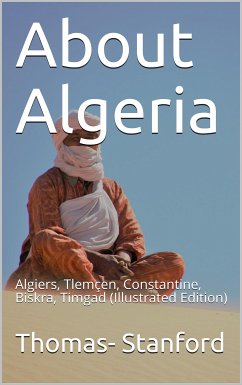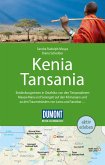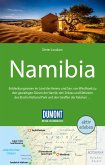The following pages are a record of impressions received from a visit Algeria in the early months of 1911. In a former volume I dared to ridicule the pretensions of those who, on the strength of a short stay in a foreign country to enlighten the public. My chickens have come home to roost.
If I must seek an excuse for hasty conclusions I may find it in the motor-car. It has revolutionized the relations of time and space, and abolished the barren interludes of travel. It has increased fourfold the traveller’s opportunities of observation. Algeria, a land of great distances and admirable roads, is especially suited to its use. And it is a country brimful of interest, historical and actual. The scholar may dig in the debris of the Roman and Byzantine dominions; the connoisseur revel in the relics of Moorish art; the politician contemplate the colonization of a conquered territory in the face of a subject population alien in race and religion; the ordinary traveller will be content to sip a little at each source. So have I sipped in these pages. Much that I have written will be trite to those who know the country. But perhaps I shall induce others to go and see for themselves. And on their gratitude I rely with confidence.
The reproduction here of some of Mr. Thoroton’s admirable drawings of Arab doorways may serve to lead the attention of travellers—and perhaps of the authorities—to these interesting features of the old town of Algiers. The destroyer is busy, but here, as elsewhere, his ruinous energy makes what he has spared more precious. There are signs that his days are numbered, of the rise of a more enlightened public opinion concerning the preservation of features of antiquarian value or natural beauty. The excellent work of the Service des monuments historiques is bearing good fruit. At Timgad it has given a Roman City to the modern world; at Tlemçen it is safeguarding the treasures of Arab decorative art; the less important antiquities of Algiers and Constantine, and of a hundred less considerable places, should be its future care.
It is too much to expect that a trading and agricultural community should wax enthusiastic over such matters for their own sake. The point we have to emphasise is that there is money in them; that they have a very distinct and rising commercial value, easily destroyed, and, once lost, irrecoverable.
If I must seek an excuse for hasty conclusions I may find it in the motor-car. It has revolutionized the relations of time and space, and abolished the barren interludes of travel. It has increased fourfold the traveller’s opportunities of observation. Algeria, a land of great distances and admirable roads, is especially suited to its use. And it is a country brimful of interest, historical and actual. The scholar may dig in the debris of the Roman and Byzantine dominions; the connoisseur revel in the relics of Moorish art; the politician contemplate the colonization of a conquered territory in the face of a subject population alien in race and religion; the ordinary traveller will be content to sip a little at each source. So have I sipped in these pages. Much that I have written will be trite to those who know the country. But perhaps I shall induce others to go and see for themselves. And on their gratitude I rely with confidence.
The reproduction here of some of Mr. Thoroton’s admirable drawings of Arab doorways may serve to lead the attention of travellers—and perhaps of the authorities—to these interesting features of the old town of Algiers. The destroyer is busy, but here, as elsewhere, his ruinous energy makes what he has spared more precious. There are signs that his days are numbered, of the rise of a more enlightened public opinion concerning the preservation of features of antiquarian value or natural beauty. The excellent work of the Service des monuments historiques is bearing good fruit. At Timgad it has given a Roman City to the modern world; at Tlemçen it is safeguarding the treasures of Arab decorative art; the less important antiquities of Algiers and Constantine, and of a hundred less considerable places, should be its future care.
It is too much to expect that a trading and agricultural community should wax enthusiastic over such matters for their own sake. The point we have to emphasise is that there is money in them; that they have a very distinct and rising commercial value, easily destroyed, and, once lost, irrecoverable.









